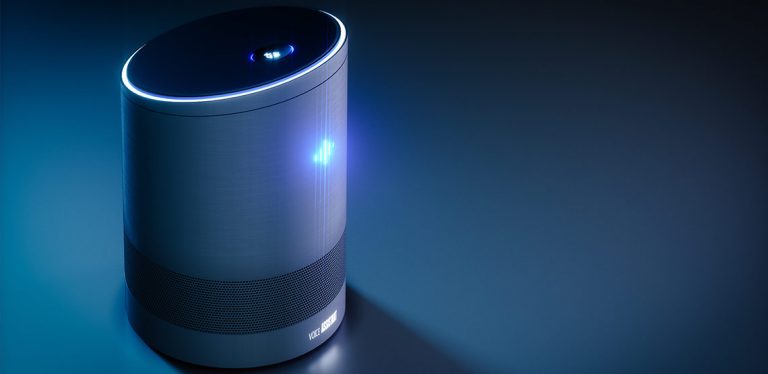"Okay, Google" or "Hello, Alexa?"
Google Home and Amazon Alexa are both incredible pieces of technology, but which smart assistant is better?
Truthfully, it all comes down to personal preference. In this article, we put Google Home and Amazon Alexa up against each other to help you find out which voice assistant will be more useful to you. We’ll consider all things from smart assistant functionality, smart speaker quality, price range, and more.
Voice Assistant Capabilities
When it comes to voice assistants, the very basis of the technology needs to be good for it to be something that people will enjoy using on a daily basis. Both Alexa and Google Home have their pros, but when it really comes down to it, Google Home is far above what Amazon Alexa is capable of.
It makes sense when you realize that Google Home is built by the same people who are in charge of the most powerful search engine in the world. Google has the tools to turn the Google Home into a truly smart voice assistant.
Amazon Alexa obviously has its own capabilities as a voice assistant, but there’s a number of limitations that come with being unable to take advantage of such powerful search engine tools.
Google Home is also much better at understanding contextual questions. By this, we mean that Google Home can use information about past questions to help find an answer to a follow-up question. If you ask a question like “What is the weather on Friday?" you can follow up with “What is the weather like the day after?" and Google Home will understand.
Product Design
Product design is surprisingly important for home assistant speakers. When you think about it, these pieces of technology need to be able to blend in with the environment around them. Whether your speaker is in your kitchen, your bedroom, or your living room, you don’t want it to feel out of place.
Thankfully, the range of speakers from both Amazon and Google are on top of their game. This is especially true in Amazon’s case: ever since their second generation of voice assistants, their product design has been incredible. There are now a number of design choices that Amazon Alexa customers can pick from.
The same can be said about the Google Home. It truly comes down to what you perceive to be the best design.
Another thing to keep in mind is that the Google Home doesn’t have physical buttons; if you want to be able to access your voice assistant and adjust its volume or mute it, you’ll want to opt for the Amazon range.
Price Range and Product Range Expandability
Price is a big talking point with smart speakers, especially if you’re interested in bringing multiple smart speakers to your home.
On the low end, prices and product design are in-line with each other. Both the Google Home Mini and Amazon Echo Dot will set you back $49. Both are small disk-shaped speakers that lack a huge sound space to cut down on costs.
Once you get into the mid-range, you start to see the differences. The budget-friendly Amazon range truly starts to shine. The standard 2nd generation Amazon Echo costs $99, whereas Google Home’s mid-range model will cost $129. A $30 difference may not seem like much, but if you plan to buy multiple speakers, the difference really starts to add up.
Related Search Topics (Ads)
Finally, when comparing both Google and Amazon smart speakers, we have the high end. The price difference is once again clear.
On Google’s side, we have the $399 Google Home Max, which provides no additional functionality over the Google Home beside the improved speaker. The sound experience on the Google Home Max is worth writing home about. The trouble is if you really care about sound quality, why not just go with an Amazon Alexa and connect it to your own sound system?
There’s a bit of a divide in opinion here, but there are options that cater to both audiences.
For Amazon, there are two devices that can be considered ‘high end.’ First, we have the Amazon Echo Spot: this is a $129 device that comes with an included display. The display is small, but it’s large enough to watch over any security camera footage or to view videos or to make video calls.
We also have the Amazon Echo Show: this device has a far larger display and a reasonable speaker to go along with it. This device will set you back $229.
It’s clear that the Amazon Echo is king when it comes to the budget conscious shopper. Their expanded range of devices will make it easier for homeowners to create their own multi-room setup as well.
Smart Home Compatibility
Both Google Home and Amazon Alexa offer a similar level of support for Smart Home compatibility. When you look into the nitty-gritty details, however, Amazon has more support for a wider range of devices, and additional control via Amazon’s Alexa app.
If you care about Smart Home compatibility, Amazon is on top of the ladder for now.
Both voice assistant ranges are highly competitive, but when you think about it, it’s clear that they offer different experiences. Google Home is perfect for those looking to interact with the speaker, as the Google voice assistant is much better than Amazon Alexa.
However, if you want to start building an expansive smart home experience, Amazon is the place to start. The cheaper prices make it easier to afford more speakers and their range of products is far more expansive when you throw in the Echo Dot and Echo Spot. Amazon also has better support for smart home integration (for now.)
